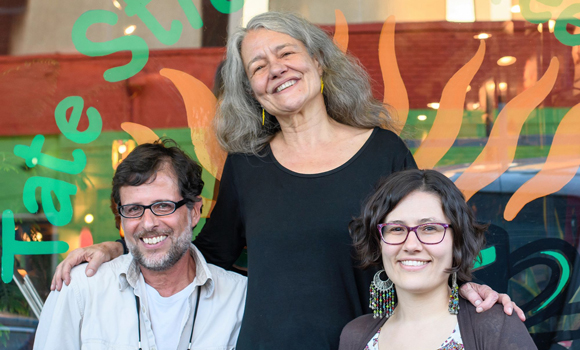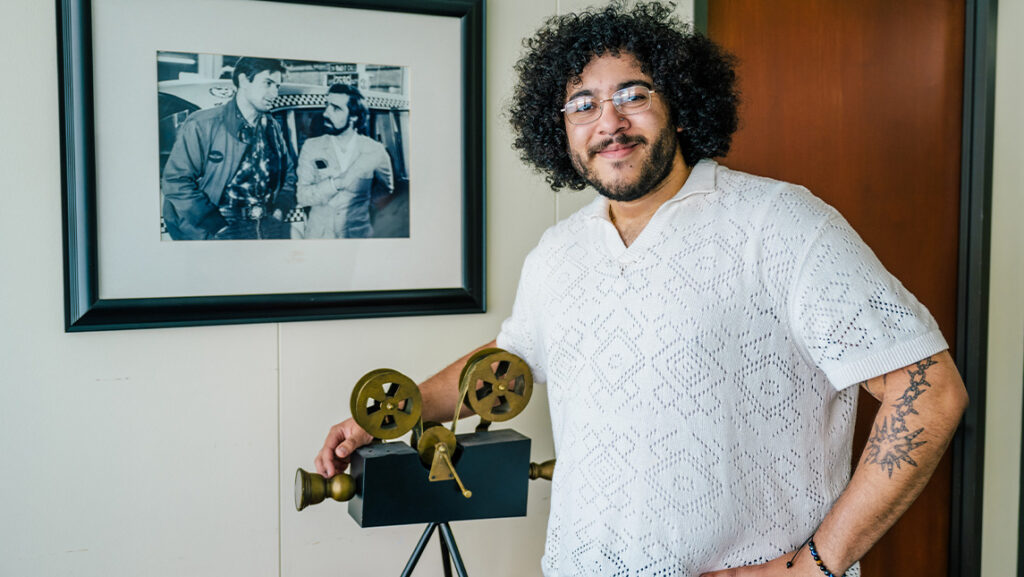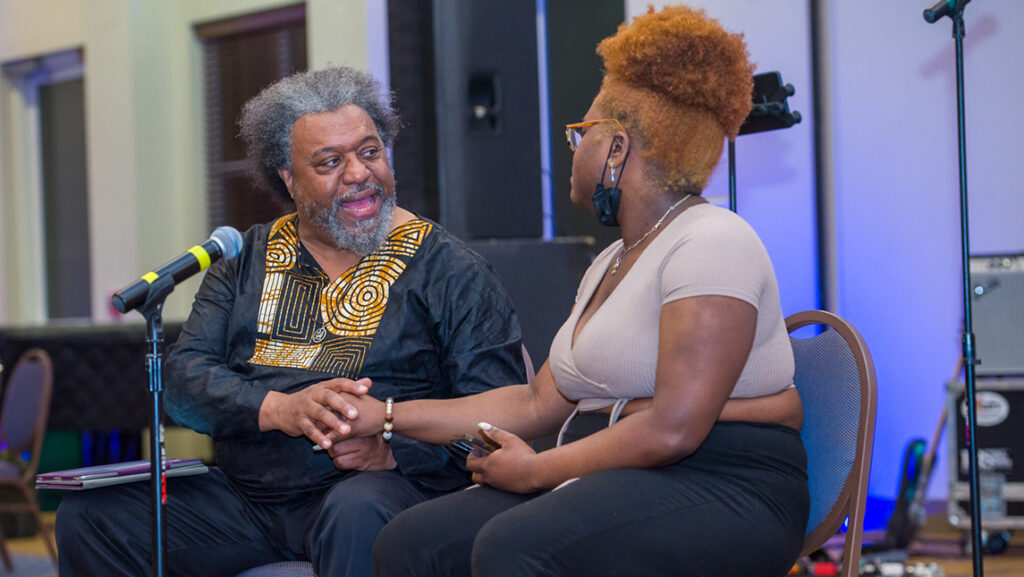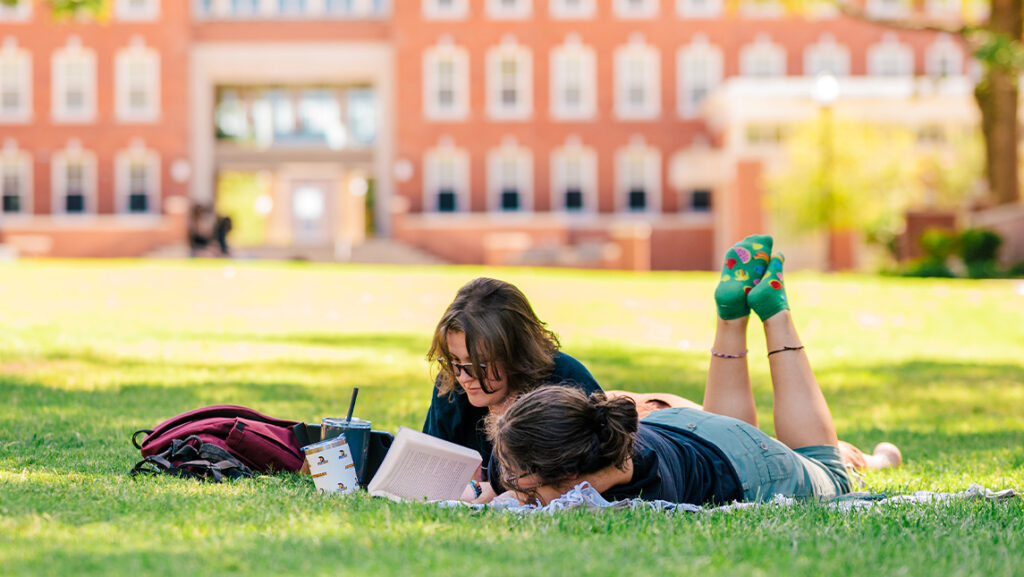You could say that Dr. Rebecca Adams’ research on Deadhead culture is alumnus Matthew Russ’ fault. While majoring in sociology at UNCG in 1987, he spotted the professor at a Grateful Dead concert. Afterward he convinced her to study the band’s fans as a serious line of inquiry.
In 1989, Adams created one of the first sociology courses in the country dedicated to the subject.
Adams, 21 students, a film crew, and two graduate assistants traveled with the Grateful Dead and their fans across the northeastern U.S. to study Deadheads within concert venues, a pedagogical approach that had to be defended by then UNCG Chancellor Moran to UNC System president Spangler. The course was even ridiculed in a local newspaper.
But Adams’ research – on how Deadheads form and maintain identities and communities – eventually gained her national and international recognition.
In the spring, three decades of work came home for Adams at the “UNCG Dead Scholars Unite!” symposium, which she co-organized with Assistant Professor Justin Harmon and alumna Kristen Huff as part of the University’s “The 60s: Exploring the Limits” year-long series of events. The symposium brought together Dead scholars and Deadheads, and reunited Adams with her summer of ’89 students, marking the 30th anniversary of what they now fondly refer to as “The Class.”
“Another Year of the Dead” events included showings of “Long Strange Trip: The Untold Story of the Grateful Dead,” art and photo exhibits, a semester-long online course, and performances by UNCG cover band Spartans Play Dead.
Over the years, Adams has seen Deadheads age, as well as newer generations of fans enter the scene. In the process, her work on Deadheads has increasingly aligned with her other primary research area – aging and friendship.
“I was studying Deadheads long enough for the things to come together,” the gerontology professor says.
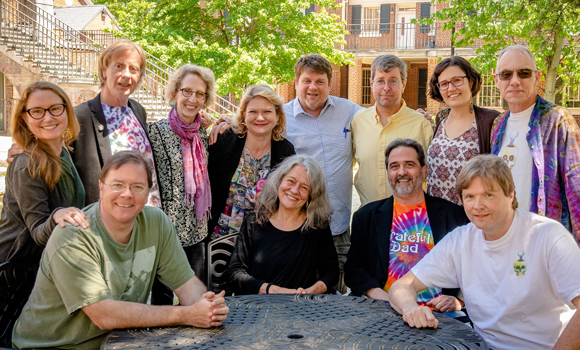
“This is my effort to bring all of the Deadheads affiliated with UNCG or who live around this area together into an intergenerational community,” Adams says. The symposium wrapped with a celebration at Matthew Russ’ Tate Street Coffee House and an encore by Spartans Play Dead at the Van Dyke Performance Space in downtown Greensboro.
From the beginning of her academic career, Adams was interested in how aging adults form and maintain friendships across geographic distance. The topic of friendship was not popular in her field at the time, but Adams followed her instinct and forged her own path. Since then, she says, studies have found that friendships in old age are as critical to wellbeing as family connections.
“I was willing to study things that were difficult to fund,” she says. “Things which were not necessarily the topics everybody thought I should be studying, but in the long run turned out to be important.”
At UNCG, she has helped develop GROWTH, a hub of faculty and community partners who support transdisciplinary aging-related research, education, and outreach across the campus and community. “I want to help develop the aging network infrastructure in Greensboro,” she says.
Lately, the mission has become more personal. “This is in some ways about planning for my own retirement and making Greensboro the kind of place I want to be old in. I’m kind of planning my own exit.”
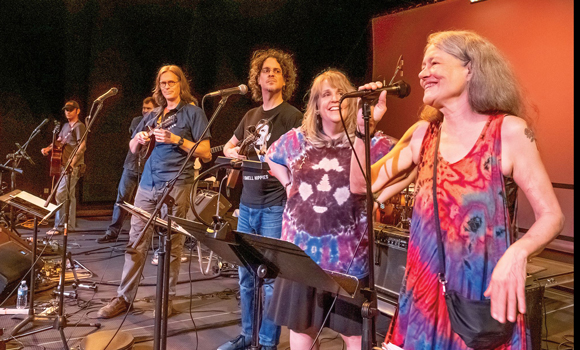
Adams says a key Deadhead community belief is “what goes around comes around,” meaning that good karma will come back to you. For Adams, the fruits of her life’s work and community-building are finally coming around.
This post originally appeared in UNCG Research Magazine. To read other stories about research, scholarship, and creative activity, visit researchmagazine.uncg.edu.
Story by Matthew Bryant, University Communications
Photography by Martin W. Kane, University Communications
